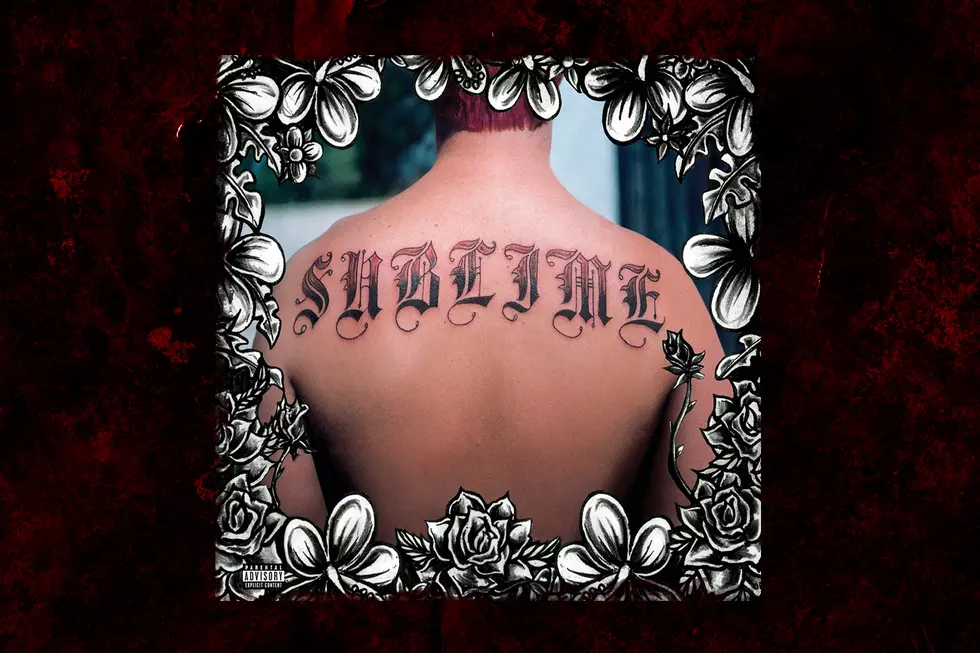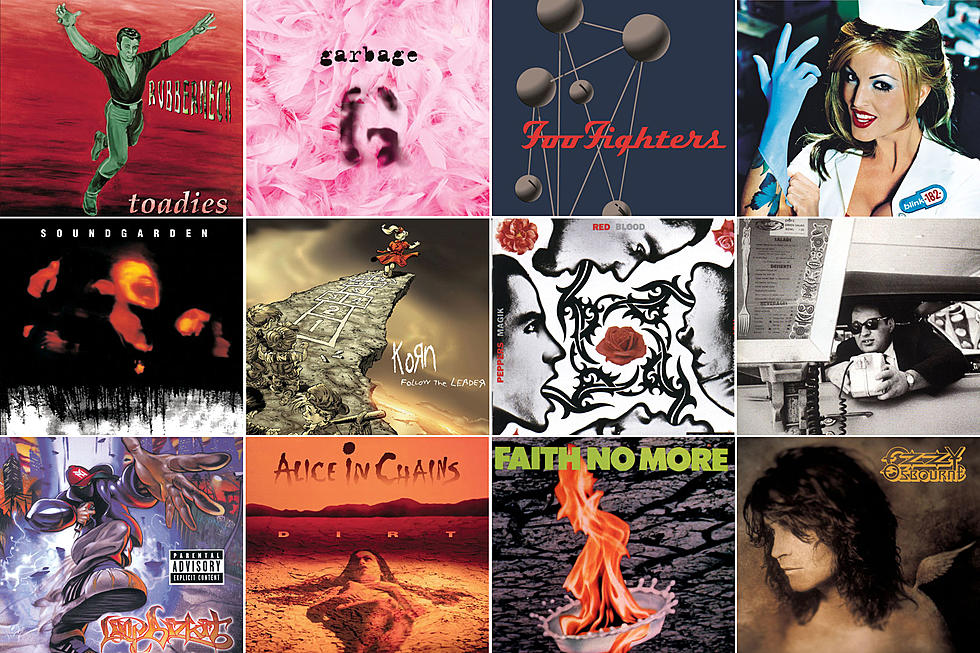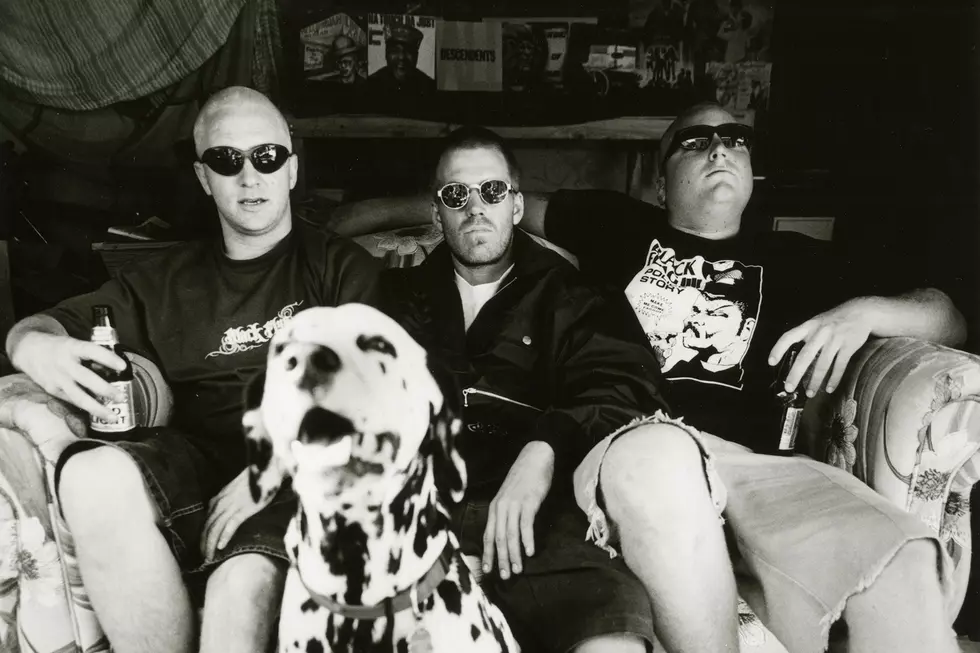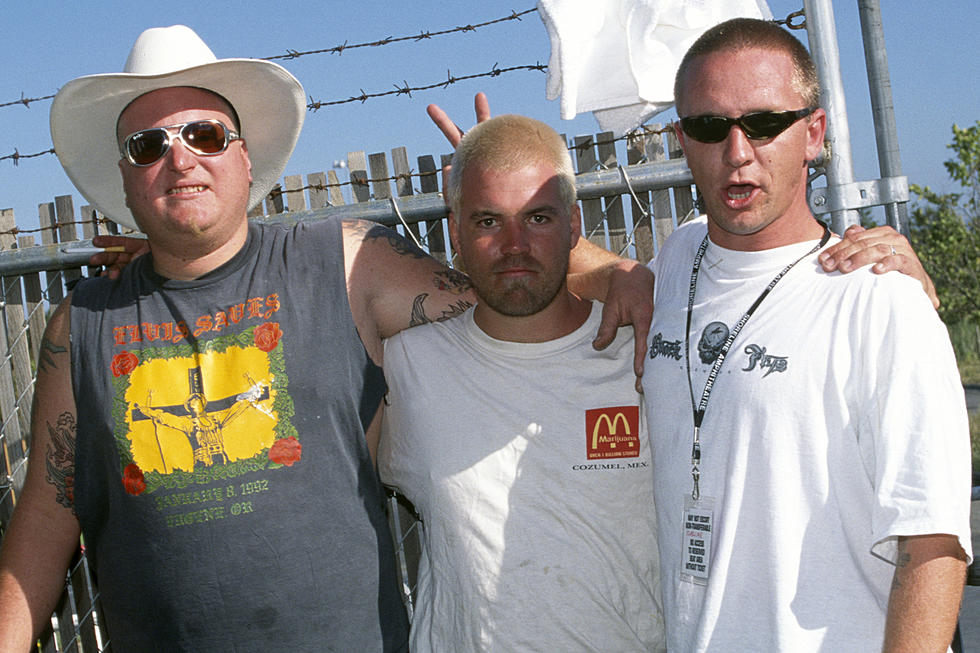
26 Years Ago: Sublime Release Self-Titled Album
It should have been a joyous occasion, but on July 30, 1996, Sublime enjoyed a bittersweet taste of success when they released what would become their biggest album -- their self-titled release.
Sadly, frontman Bradley Nowell's growing heroin addiction claimed his life just two months prior to the album's release. But his final musical statement connected with fans across the board more than either of the band's previous releases and proved that the group was poised for major success.
The band primarily recorded the Sublime album at Willie Nelson's Pedernales Studio in Austin, Texas, between February and May of 1996 with the Austin-based Paul Leary of Butthole Surfers fame serving as producer on the album. "They were the sweetest bunch of guys," recalled Leary to Rolling Stone, "[but] it was chaos in the studio. There were times where someone had to go into the bathroom to see if Brad was still alive." Eventually things got so bad that Nowell was sent home before the recording was complete. "It took him three days to get back on his feet," recalls the singer's father Jim. "It was the worst I'd ever seen him."
But while drugs may have taken an increasingly prominent toll on the singer, the musical vision was clear. Using a mix of punk, reggae, ska, dancehall, hip-hop and dub music elements, Nowell and his bandmates Bud Gaugh and Eric Wilson somehow mixed it all together with very personalized lyrical content into one pleasing blend that captured the ears of millions of fans and yielded critical praise.
Sublime, "What I Got"
The disc enjoyed a slow build, beginning with the breakout single "What I Got." The upbeat track served up the ideal of taking a positive outlook on life even through the hardships, and it's sunny disposition definitely connected with listeners. The song shot to No. 1 on the Modern Rock Chart, No. 11 on the Mainstream Rock Chart and even enjoyed crossover success cracking the Billboard Hot 100 at No. 29. And Nowell's own life is all over the song, including a line about his dog running away. In the documentary video Sublime - Stories, Tales, Lies and Exaggerations, Nowell's widow, Troy Dendekker reveals that Lou Dog went missing for a week and that Nowell spent a good portion of the time crying on his couch. When his dog eventually returned, Nowell covered the Camper Van Beethoven song "The Day That Lassie Went to the Moon" and changed the lyrics to "Lou Dog Went to the Moon." His cover would turn up on the bootleg Firecracker Lounge.
As for the "What I Got" video, with Nowell deceased, it made promotion difficult. But a video collage of archived footage, photos of Nowell and shots of his home base served as a fitting tribute, and much like the song, the video achieved great success.
Sublime, "Santeria"
By early 1997, the Sublime album was really starting to take off and a second single, "Santeria," was released. The song borrowed a bassline and guitar riff from the older "Lincoln Highway Dub" from the band's 1994 disc Robbin' the Hood. The track told the story of a man who was ready to take revenge on the guy who stole his girlfriend. Like "What I Got," the song shot up the charts. "Santeria" hit No. 3 on the Modern Rock chart and No. 43 on the Billboard Hot 100. It remains one of the band's most popular tracks, having been used in such films as Idle Hands, Knocked Up and This Is 40 and covered by Aimee Allen, Meg & Dia and AVAIL among others. The video for the song once again incorporated Nowell, this time as a ghostly figure, with his person being inserted from stock footage.
In May of 1997, Sublime released the third single "Wrong Way" from the album. The track, about a young girl pimped out by her family into prostitution, also became a popular song at alt-rock radio, hitting No. 3 on the Modern Rock chart. The song features a trombone solo from John Blondell that contains an interpolation of George Gershwin's "Rhapsody in Blue." The track also borrows a melody and rhythm from The Specials' "It's Up to You." Actress Bijou Phillips starred in the video for the song, which also included a guest appearance by bassist extraordinaire Mike Watt.
Sublime, "Wrong Way"
And finishing out the album's singles, "Doin' Time" arrived in November of 1997. The Gershwin influence once again came through, as the track heavily sampled a cover of "Summertime" done by jazz flautist Herbie Mann. In order to release the song with the Gershwin sample, the band had to change a line to include "Summertime," but as Nowell had already passed, it's Sublime pal Michael Happoldt that sings the line. "Doin' Time" follows the story of a guy who feels trapped by his cheating girlfriend and the poor way she treats him. The song peaked at No. 28 on the Modern Rock chart, but has remained one of their more popular radio songs.
Though not released as singles, two other tracks from the album have also received significant airplay over the years. The bass-heavy "Caress Me Down" draws from Wayne Smith's Sleng Teng riddim and borrows lyrics and melody from the Clement Irie '80s single of the same name. Meanwhile, "April 29, 1992" was penned after the 1992 Los Angeles riots and offers a pointed commentary on the acts of arson, robbery and vandalism that went on after the acquittal of the four police officers accused of beating Rodney King. The track includes a sample of an actual Long Beach Police Department radio communication at the beginning of the song.
Sublime, "April 29, 1992"
By the time all was said and done, the Sublime album spent 122 weeks on the chart, eventually peaked out at No. 13 and went five times platinum. It made many a "Best of" list not only for the year 1996, but for the '90s decade, as well. But sadly, Nowell was not around to experience it.
"I felt like kicking his ass," recalled Gaugh to Rolling Stone. "I mean, I'd been there and was still struggling with it. So I was all things that I could be to him during that time. I tried to be his conscience; I tried to be his nurse. I even tried to be his drug buddy; I mean, we got loaded together a couple of times."
Nowell's widow summed it up, stating to Rolling Stone that even though he died young, he still accomplished all he had hoped: "He always wanted to have a baby: 'We gotta have a kid,' he said. He wanted to get his family back, 'cause he had hurt them so bad with his drug use. And he did. He wanted to get this album written, and he wanted it to be the best one he ever wrote. And he did. He wanted his band to have glory. And they did."
But, she adds, "I'm not saying that it's OK that Brad died, because it's not OK. So many things have happened that I wish he could see – Sublime being nominated for awards and their videos being on MTV all the time and their songs played on the radio. Or things will happen with me, and Brad's the first person I want to tell, 'cause we were best friends. I want to see his reaction to all this. What's OK is [that] there's no more struggle, no more war. That struggle took up a lot of our energy and our time, and it was horrible. He's at peace now."
Where Does Sublime's Sublime Rank Among the Top 100 Hard Rock + Metal Albums of the 21st Century?
More From Classic Rock 105.1










